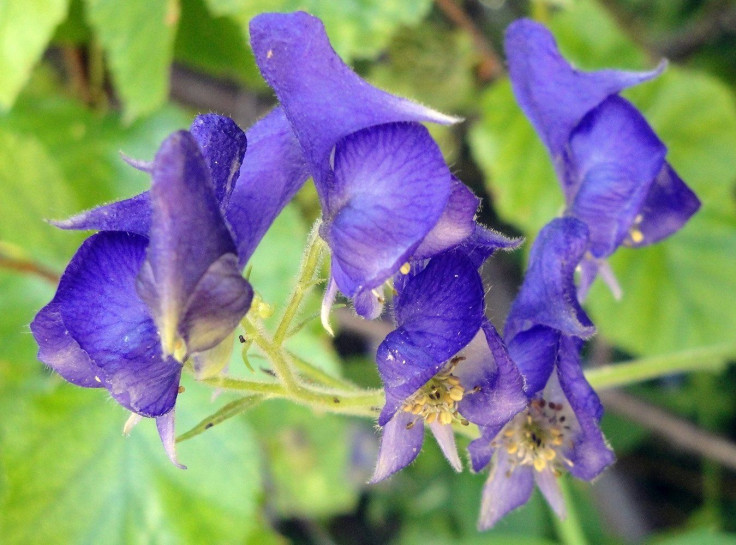Woman Poisoned By Her Own Herbal Chinese Remedy, Suffers Severe Heart Problems

It’s a natural remedy that almost led to a woman’s unnatural passing.
This Wednesday in the Canadian Journal of Cardiology, a team of doctors from the Aerospace Center Hospital in Beijing, China, reported on the peculiar case of a woman poisoned by an herbal concoction known as Fuzi — the side effects of which left her heart racing abnormally fast and her stomach in need of being pumped.
Thankfully, the woman did survive, and her doctors are hoping her perilous tale can impart a few lessons on the importance of not assuming anything called "natural" is necessarily perfectly safe. "The public should be warned of the risk of severe poisoning that can accompany traditional Chinese medicinal usage of Fuzi," said study author Dr. Zhong Yi in a statement.
A Herb Of Many Names
The primary culprit of the woman’s poisoning was a type of plant called Aconitum, whose over 250 species each contain the toxin aconitine, particularly in their roots. Aconitine has had a rich history as both poison and painkiller throughout the ages, with more nicknames attached to it than shared between that annoying couple in sixth grade. It’s gone as monkshood, wolfsbane, the devil’s helmet, and countless others, including Fuzi.
Before the days of conventional medicine, people relied on small doses of aconitine as a pain and fever reducer, with various degrees of success. Others, such as the last wife of Roman emperor Claudius, are believed to have used it for more nefarious deeds (there is disagreement as to whether Claudius was actually poisoned, it should be said). Though the current herbal preparations of aconitine are meant to be purified to the point of non-lethality, it doesn’t take much of an overdose for the toxin to unleash a bevy of nasty effects on its user, especially when it comes to their heart.
The unfortunate woman in question reportedly chugged down 50 milliliters of a liquid mix containing aconitine (specifically from the plant Aconitum carmichaeli Debx), and within 30 minutes, she experienced a rapid drop in blood pressure right before fainting. By the time she reached doctors, she was diagnosed with a heart rhythm disorder known as bidirectional ventricular tachycardia (BVT). In addition to her out-of-control heart beat, the woman’s digestive system stopped dead in its tracks, a condition called gastric retention, necessitating a stomach pump.
The scariest moment, however, came when none of the antiarrhythmic medications previously known to counteract aconitine poisoning worked on the woman, leaving the doctors helpless to do much of anything. "Management of potentially lethal ventricular tachyarrhythmia associated with aconitine poisoning presents a therapeutic challenge," explained Dr. Yi. "In a previously published case, amiodarone was effective in suppressing the BVT. However, in our patient, both lidocaine and amiodarone were ineffective." Somehow though, after two hours, the woman’s BVT began to subside on its own.
According to a 2009 review on the subject, the mortality rate of aconitine poisoning once it’s reached the hospital stage is around 5.5 percent, primarily from an abnormal heartbeat or a full-out flatline.
With a flare for understatement, an accompanying editorial by Dr. P. Timothy Pollak, a member of the Department of Medicine at University of Calgary, concluded the woman’s incident demonstrated that "not all products of Mother Nature are free of harm.” Far from passing judgment on their patients who delve into the world of alternative medicine, though, Pollak advised that medical professionals steel themselves to have a frank conversation about the pros and cons of natural remedies. "Dodging the discussion can only lend credibility to any patient suspicions that as a practitioner of Western medicine, you have been denied the secrets of alternative remedies or are hiding them for ulterior motives," he wrote. "This report serves as a timely illustration that alternative remedies do have implications for the practice of cardiology that cannot be ignored."
Source: Zhao Y-T, Wang L, Yi Z. An Unusual Etiology for Bidirectional Ventricular Tachycardia. Canadian Journal of Cardiology. 2015.



























